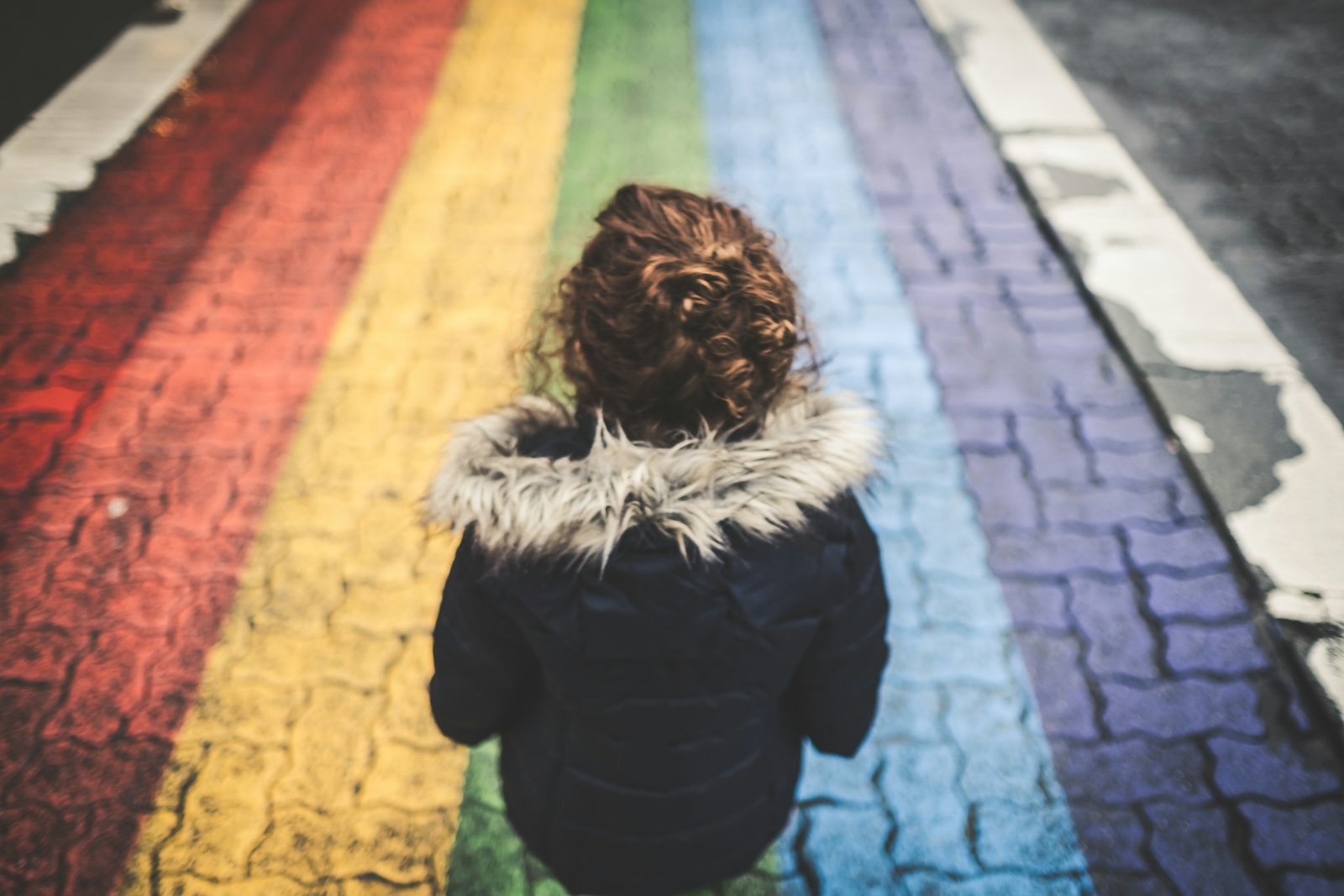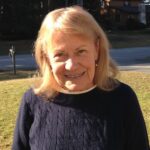Educating Grandma by Marilyn Morgan

A product of the fifties, I grew up with Donna Reed, Pat Boone, and the most daring heartthrob of all, Elvis Presley. So when my fifteen-year-old granddaughter, Lia, said to me, “Grandma, I’m not a girl,” I felt the wind ravel right out of my lungs.
When I came to, I muttered some inane oh and shoved a forkful of dinner into my mouth and sought escape in what had been dinnertime banter around the table. Turn the dial back just a notch. Had I heard correctly? Abruptly, four pair of eyes, my son and his family, glanced in my direction, and written on their faces— how is grandma going to react?
How was I supposed to act? There seemed no rules, no manual, in fact, what was Lia talking about? Scattered thoughts rushed about: this is a joke, Lia has a serious boyfriend, Lia loves makeup, nail polish, miniskirts, and spends hours and hours in front of the mirror; Lia as a kid coddling her multiple collection of American Girl dolls, and Lia dressing as a princess and brushing her long blond hair. As abruptly as Lia had interjected her news, the talk slid back into family banter almost as if this pronouncement had never occurred. Or at least that is how it seemed to me for nothing more was said, enumerated or explained. And since I was unable to process this comment—it made no sense to me—I, too, retreated silently into the banter.
Days rolled by, and I tucked the incident safely away for surely, I hadn’t gotten this right. I had been a high school teacher for over thirty years and prided myself on my tolerance, open mindedness, and strong rapport with teenagers. Furthermore, I believed, although now retired for a few years, that I had kept up with the times and had heard it all. I wasn’t one of those “out of it old fogey” grandmothers passing judgment on the baffling world of teenagers. What I didn’t take into account was the speed with which the culture was changing and the reality that perhaps, the new generations had outrun me.
As the pride movement took on momentum, my son and family had supported the LGBT community, proudly wearing colorful pride t-shirts, taking part in fundraisers, and at times, attending protests. Although I never marched alongside my family, I was proud of the respect they showed for all people. This seemed a thing of the times much the way my generation had taken part in the rallies against the Vietnam War.
As the world rushed on, a new vocabulary appeared to be emerging. I understood language changes over time, but all these strange new words caught me by surprise: intersex, nonbinary, trans, genderfluid. Gender had always meant either male or female. How many times have I filled in an application or registration and have been asked to check the appropriate box, male or female? But now gender seemed to encompass a wide spectrum of related definitions.
A few days after dinner that night, Lia explained that she was nonbinary, not gender specific and would go by the pronouns they/them, no longer she/her. Imagine, just for a minute, a thirty-year veteran English teacher who had spent her career with a red pen pointing out errors on student papers—a pronoun agrees with its antecedent in number and gender and a verb agrees with its subject in number. And now her granddaughter—singular— has morphed into they—plural.
Ingrained habits, say nothing about years of education, are slow to leave. Returning to school at this age is hard and I need a lot of help. When with my family, I constantly make mistakes as I enthusiastically chatter on about Lia. I’m so proud of them—see, I’m learning. My family gently corrects me along the way like a good teacher, encouraging rather than scolding. Every time their Mom or Dad refers to Lia as they—just for a moment I look around wondering where their friend is or who is with them.
 Marilyn Morgan is a retired English teacher. Marilyn’s prose has appeared in Edge, Motif, KYSO Flash, *82 Review, Blue Mountain Review and elsewhere. Her poetry has been published in American Tanka, Skylark, Ribbons and other poetry journals. In the wintertime, Marilyn lives in New Hartford, New York, and in the summertime, you can find her at her cottage on the St. Lawrence River.
Marilyn Morgan is a retired English teacher. Marilyn’s prose has appeared in Edge, Motif, KYSO Flash, *82 Review, Blue Mountain Review and elsewhere. Her poetry has been published in American Tanka, Skylark, Ribbons and other poetry journals. In the wintertime, Marilyn lives in New Hartford, New York, and in the summertime, you can find her at her cottage on the St. Lawrence River.
